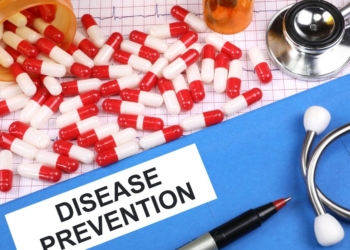Around the world, it is common for women to experience hair fall after giving birth. This phenomenon is called postpartum hairfall, and it occurs because of the sudden drop in estrogen levels that happens after childbirth. Postpartum hairfall is temporary and usually starts around 3 months after delivery.
The good news is that there are things that you can do to minimize the amount of hair fall that you experience. In fact, it is estimated that up to 50% of women will experience some degree of hair loss in the first three months after childbirth.

There are many factors that can contribute to postpartum hairfall, including hormonal changes, stress, and nutrient deficiencies. Luckily, there are a few things that you can do to help prevent or minimize hair loss. First, make sure that you are eating a healthy diet and getting enough vitamins and minerals. Second, try using a gentle shampoo and conditioner that will not strip your hair of its natural oils.
Why postpartum hairfall happens
Postpartum hair fall is a type of hair loss that can happen after you have a baby. It’s also called telogen effluvium. When you’re pregnant, your hair goes through a resting phase. This means that your hair follicles don’t produce new hair. After you have your baby, your hormone levels drop quickly. This causes the resting phase to end and the new growth phase to begin. During this time, you may lose more hair than usual. This is because hormone levels affect the hair growth cycle.
After the postpartum period is over, normal hair shedding should return. The new growth phase will determine how much hair you lose, and that will depend on your age, health, and diet.
Hormones: How hormones cause postpartum hairfall
Hormones are one of the main causes of postpartum hairfall. When a woman gives birth, her body goes through many changes. Hormones play a big role in these changes, and can cause a woman to lose a lot of hair.
During pregnancy, a woman’s hormones change significantly. This can result in thicker, fuller hair. However, after the baby is born, these hormone levels drop quickly. This sudden change can cause the hair to fall out in large clumps. It is not uncommon for a woman to lose up to 100 strands of hair per day during this time.
While it may be alarming to see so much hair falling out, it is perfectly normal and should not last for more than a few months. After the hormone levels return to normal, the hair will stop falling out and will eventually regrow.
Diet: The role of diet in postpartum hairfall
It’s no secret that diet plays a role in overall health, but did you know that what you eat can also affect postpartum hairfall? Just like the rest of your body, your hair is composed of proteins and nutrients that it needs to stay healthy. After pregnancy, many women experience hair loss due to changes in hormone levels and nutrient deficiencies. While there is no one “perfect” postpartum diet, there are certain foods that can help promote hair growth and reduce hair loss.
Protein is essential for healthy hair growth, so be sure to include plenty of protein-rich foods in your diet. Lean meats, poultry, fish, beans, lentils, and tofu are all good sources of protein. You should also eat plenty of fruits and vegetables, which are rich in vitamins and minerals that support hair health.
Stress: Why stress contributes to postpartum hairfall
Hair loss after pregnancy is common, but it’s often temporary. However, some women experience prolonged hair loss that can be both emotionally and physically distressing. While the exact cause of postpartum hair loss isn’t known, it’s thought that hormonal changes and stress may play a role. Hormonal fluctuations can trigger excessive shedding, while stress can further exacerbate the problem.
Although the hair loss is temporary, it can take months to grow back. A study published in the Brazilian Journal of Dermatology showed that women who have given birth had significantly higher levels of cortisol (the stress hormone) than did their counterparts who had not given birth.
Genetics: Why postpartum hairfall can be genetic
Losing hair after pregnancy is common, but it can also be genetic. If you’re one of the many women who experience hair loss after pregnancy, you may be wondering if it’s something that runs in your family. And according to new research, it very well could be.
A recent study published in the journal PLOS Genetics found that postpartum hair loss is indeed genetic. The study looked at data from over 21,000 women and found that there are certain genes that are associated with an increased risk of hair loss after pregnancy.
So if you’re struggling with postpartum hair loss, know that you’re not alone and that it may very well be out of your control.
Treatment options: What can be done to treat postpartum hairfall
While there is no one-size-fits-all solution to this problem, there are several treatment options that can help to reduce or prevent postpartum hairfall. One of the most effective treatments for postpartum hairfall is supplements. Supplementing with certain vitamins and minerals, such as iron and biotin, can help to promote healthy hair growth and prevent further hair loss. In addition, omega-3 fatty acids have been shown to be beneficial for both overall health and hair health.
In conclusion, postpartum hairfall is a common issue that many women face after giving birth. It can be caused by a variety of factors, including hormonal changes, stress, and lack of sleep. While it is not a serious health concern, it can be upsetting for many women. If you are experiencing postpartum hairfall, talk to your doctor about possible treatments.



















